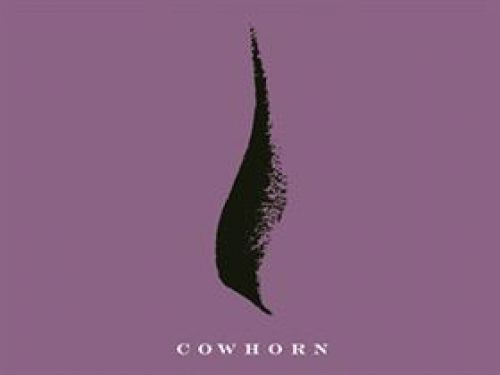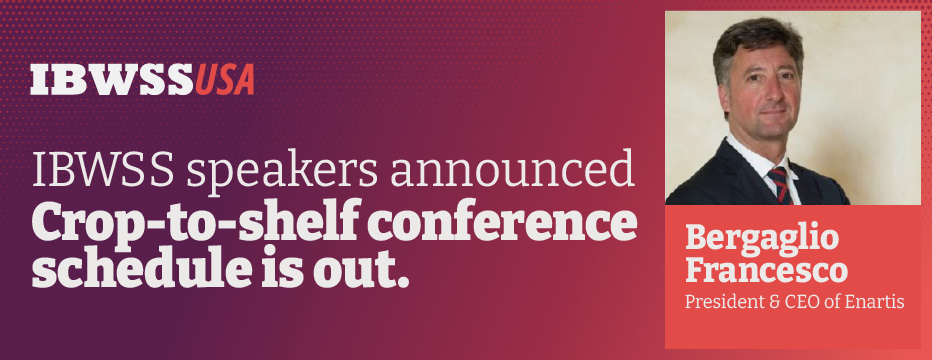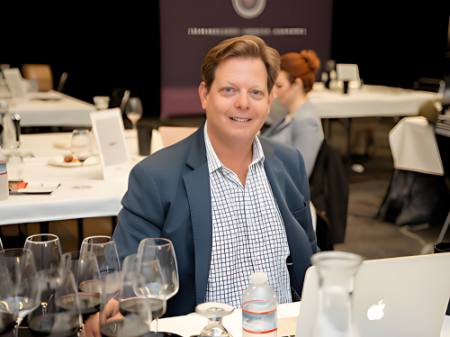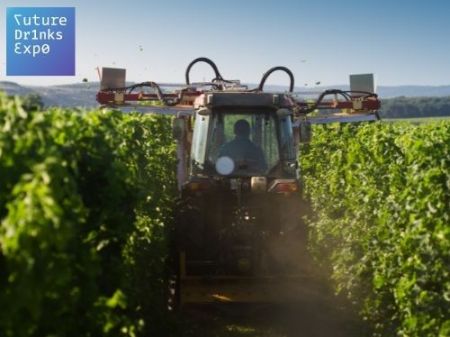Sommeliers Choice Awards 2023 Winners
Cowhorn Vineyard & Garden Becomes the First Winery to Achieve Living Building Challenge Petal Certification
Southern Oregon tasting room is free of toxic chemicals, produces all of its own energy, and meets all of its water needs on site, among other eco features

Cowhorn Vineyard & Garden today announced that its new tasting room has achieved Living Building Challenge™ (LBC) Petal Certification, the world’s most rigorous green building standard. The award-winning winery located in Southern Oregon is the world’s first winery to meet the LBC Certification requirements, a goal it set out to achieve nearly three years ago.
One of the first Demeter-certified Biodynamic® commercial farms and estate wineries in the United States, Cowhorn has long been a leader in sustainable agriculture practices. When setting out to build a 2,200-square-foot tasting room and case storage area, owners Bill and Barbara selected Green Hammer, a Portland, Oregon-based design-build firm, to help them create a tasting room that aligned with their personal and business values.
“Agriculture is extractive by definition,” says Barbara Steele. “But we do it in a way that leaves the space as good as, if not better, than the way we found it. We want our buildings and everything else about our business to follow that same philosophy.”
After a rigorous three-year process led by Green Hammer, Cowhorn achieved LBC Petal Certification in four areas — Materials, Site, Equity, and Beauty. To achieve Living Building Certification, Cowhorn must attain the remaining three Petals — Water, Energy, and Health & Happiness — which involves undergoing a one-year monitoring period and verification by the International Living Future Institute.
Of the seven LBC Petals that Green Hammer tracked throughout the design-build process, the Materials Petal by far represented the greatest challenge. Green Hammer vetted more than 1,200 building materials — ranging from hardware to drywall — to ensure they did not contain any toxic and bio-accumulative substances. These “Red Listed” ingredients such as halocarbons like PVC and flame retardants, bisphenol A (BPA), and heavy metals are all known to be harmful to human health and the environment yet is common in the building industry.
“The extraordinary depth of LBC certification exposes how far the building industry must go to control toxins in most building materials in the United States,” says Stephen Aiguier, Green Hammer founder, and CEO. “To forge a positive future for the generations to come, we need property owners like Cowhorn to demonstrate that it’s possible to create healthy buildings without using toxic materials.”
Mirroring Cowhorn’s approach to farming, the materials selected for the tasting room were handpicked for their simplicity, natural beauty, and chemical make-up, yet they reflect the sophistication of Cowhorn’s award-winning winemaking process. Wood, cork, glass, steel and other natural building materials bring outdoor elements into the tasting room. Green Hammer worked with Sustainable Northwest Wood to ensure that only Forest Stewardship Council®–certified wood was used in building construction. Green Hammer sourced the majority of building materials from within 600 miles of the construction site or closer.
Cowhorn’s new tasting room opened in June 2016, but achieving full LBC Certification is a long journey, and that doesn’t end when the lights go on and the doors open to the public. To achieve the Health & Happiness Petal, the exceptional air quality of the tasting room must be verified through ongoing testing. To achieve the Water and Energy Petals, the tasting room must produce more energy than it uses and supplies all its own water needs through an on-site closed-loop system for at least 12 consecutive months after taking occupancy. With the installment of a 16-kilowatt rooftop photovoltaic system in February, Aiguier expects the building will have no problem achieving these goals.
“The tasting room has exceptional indoor air quality,” says Aiguier. “It will cut back significantly on energy costs due to its super-insulated, airtight building envelope, high-performance HVAC system, and triple-paned windows. It utilizes the most efficient water-heating technology available today.”
Cowhorn’s water system is an appropriately sized, ecologically closed-loop system, where water is supplied by an on-site well and wastewater is treated on site and restored to the groundwater. To reduce its water consumption, the tasting room utilizes low-flow water fixtures and native and drought-resistant plants. “For years, we’ve been gaining a loyal following for our cool-climate, terroir-based wines, and beautiful setting,” says Barbara Steele. “Now, people are drawn to this amazingly beautiful tasting room, which was cultivated with the same level of precision and intention that we devote to our grapes.”
Cowhorn Tasting Room’s Place in History
- Cowhorn Vineyard & Garden is the first winery in the world to achieve LBC Petal Certification.
- Since the LBC was launched in 2006, only 63 projects worldwide (four of which are in Oregon) have achieved LBC Certification.
- Cowhorn Vineyard & Garden is home to the only tasting room that has achieved LBC Materials Petal Certification.
- To achieve the Materials Petal, Green Hammer vetted hundreds of building materials to ensure they did not contain any toxic and bio-accumulative substances known as “Red List” ingredients.
Cowhorn Tasting Room Partners
- Owners, Barbara and Bill Steele
- Designed and Built by Green Hammer
- Energy Trust of Oregon’s Path to Net Zero Program
- Interior Design by Brienne Wasmer, 2Yoke Design
- Structural Engineering by Zac Blodget, The Structural Department
- Solid Ground Landscape Architects
About Cowhorn Vineyard & Garden
Currently the only certified organic and Biodynamic winery in Southern Oregon, Cowhorn is among the first certified Biodynamic estate wineries and commercial farms in the United States. Cowhorn’s 25-acre vineyard currently produces about 4,500 cases of wine a year—a mix of Syrah, Grenache, Viognier and white Rhône blends. The commercial farm produces more than 10,000 pounds of produce each year. Cowhorn has garnered numerous awards and media attention over the years. Most recently, the 2014 Cowhorn Spiral 36 was named to Forbes’ Top 10 Best Wines of 2015, the 2012 Cowhorn Syrah 20 made Wine Enthusiast’s 2015 Editor’s Choice awards, and the winery was highlighted in Sunset Magazine’s “The Best of Wine Country” issue (October 2015). Learn more: www.cowhornwine.com
About Green Hammer
Green Hammer is a unified design-build firm based in Portland, Oregon, creating healthy and inspiring buildings that are designed for people and built for life. Established in 2002, Green Hammer specializes in transforming buildings where people live, work and play, to improve occupants’ wellbeing, financial health, and relationship with nature. Founder Stephen Aiguier is a leading green building expert and teacher on net-zero energy and Passive House design principles. The firm has received numerous awards including an Honorable Mention in the 2014 Forest Stewardship Council’s Designing and Building with FSC Awards and Earth Advantage Institute’s 2014 LEED-for-Homes Builder of the Year Award. Learn more: www.greenhammer.com
About the International Living Future Institute
The International Living Future Institute is a hub for visionary programs. The Institute offers global strategies for lasting sustainability, partnering with local communities to create grounded and relevant solutions, including green building and infrastructure solutions on scales ranging from single room renovations to neighborhoods or whole cities. The Institute administers the Living Building Challenge, the environment’s most rigorous and ambitious performance standard.
Read More at source: Wine Industry Advisor









